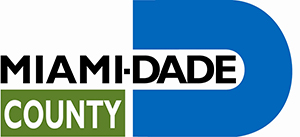Latest Miami News
Governor Ron DeSantis Announces More Than 200 Americans Have Been Rescued by the State of Florida from Haiti
![]()
TALLAHASSEE, Fla.—Today, Governor Ron DeSantis announced that the number of Americans rescued from political turmoil in Haiti by the State of Florida now exceeds 200 individuals. Since the Florida Division of Emergency Management’s first state coordinated rescue flight on March 20, a total of 220 Americans have been successfully evacuated from Haiti to Florida. The […]
The post Governor Ron DeSantis Announces More Than 200 Americans Have Been Rescued by the State of Florida from Haiti first appeared on Floridas News.
Read More
VAYK Confirmed Its Eligibility for $1.8 Million Investment through Federal EB5 Program
 DALLAS, April 11, 2024 /PRNewswire/ — Vaycaychella, Inc. (OTC Pink: VAYK) (“VAYK”) today announces that the company has confirmed with legal experts of its eligibility for $1.8 million investment under a federal program widely known as EB5. 5 Year Interest-Free Loan to Be Paid Back over 10 Years after Maturity EB5 is a legal immigration program […]
DALLAS, April 11, 2024 /PRNewswire/ — Vaycaychella, Inc. (OTC Pink: VAYK) (“VAYK”) today announces that the company has confirmed with legal experts of its eligibility for $1.8 million investment under a federal program widely known as EB5. 5 Year Interest-Free Loan to Be Paid Back over 10 Years after Maturity EB5 is a legal immigration program […]

American Tarping and United Tarps Unveil Exclusive Line of Patriotic Customized Tarps

BACK THE BLUE HD MESH DUMP TRUCK TARP STARS ‘N STRIPES HD MESH DUMP TRUCK TARP THIN RED LINE MESH DUMP TRUCK TARP American Tarping and United Tarps Unveil Exclusive Line of Patriotic Customized Tarps including the American, Red Line & Blue Line Shield flags made in the USA. We believe in making the process […]
The post American Tarping and United Tarps Unveil Exclusive Line of Patriotic Customized Tarps first appeared on Floridas News.
Read More
Crystal View Capital Fund IV Achieves Remarkable Q1 Performance Delivering 6.2% Cash on Cash Return
 LAS VEGAS, April 11, 2024 /PRNewswire/ — Crystal View Capital Fund IV, LP is pleased to announce for the first quarter of 2024 it generated cash flow to cover 78% of the accrued preferred return for the quarter coverage translating to an approximate 6.2% cash on cash return. “Given the Fund’s 2023 vintage and we are […]
LAS VEGAS, April 11, 2024 /PRNewswire/ — Crystal View Capital Fund IV, LP is pleased to announce for the first quarter of 2024 it generated cash flow to cover 78% of the accrued preferred return for the quarter coverage translating to an approximate 6.2% cash on cash return. “Given the Fund’s 2023 vintage and we are […]

Next Hospitality Advisors to Spark Innovation and Excellence at IHIF Berlin 2024

Many facets of F&B Next Hospitality Advisors is “Diving into the dynamic world of Hotel F&B” at IHIF this month. We are thrilled to be back at IHIF and share our expertise as it relates to helping Owners and Investors optimize their returns on invested capital in a discipline that is facing significant headwinds” — […]
The post Next Hospitality Advisors to Spark Innovation and Excellence at IHIF Berlin 2024 first appeared on Floridas News.
Read More
Outlaw Real Estate Partners Proudly Presents Wildlands
 New residences and commercial space bring innovation to Bozeman, Montana’s Northeast Neighborhood BIG SKY, Mont., April 11, 2024 /PRNewswire/ — Outlaw Real Estate Partners (OREP) and Outlaw Realty are pleased to announce that its flagship development, Wildlands, is completed – offering the most innovative real estate project in Bozeman’s historic Northeast Neighborhood, with only six […]
New residences and commercial space bring innovation to Bozeman, Montana’s Northeast Neighborhood BIG SKY, Mont., April 11, 2024 /PRNewswire/ — Outlaw Real Estate Partners (OREP) and Outlaw Realty are pleased to announce that its flagship development, Wildlands, is completed – offering the most innovative real estate project in Bozeman’s historic Northeast Neighborhood, with only six […]

Ready-To-Drink Functional Beverage Using Yaupon, North America’s Only Caffeinated Plant, Launches in the U.S.

Tide Amplified Tea logo As one of the first, Tide Amplified Tea is at the forefront of the revitalization of Yaupon with its energy, focus and mood benefitting sparkling teas We are proud of our products and would put them up against the healthiest beverages on the market, as we use only natural and organic […]
The post Ready-To-Drink Functional Beverage Using Yaupon, North America’s Only Caffeinated Plant, Launches in the U.S. first appeared on Floridas News.
Read More
Steven G. Mlenak Elected Fellow of American College of Real Estate Lawyers
 ISELIN, N.J., April 11, 2024 /PRNewswire/ — Greenbaum, Rowe, Smith & Davis LLP is proud to announce that Steven G. Mlenak has been elected to the prestigious American College of Real Estate Lawyers (ACREL) as a Class of 2024 Fellow. Continue Reading Steven G. Mlenak, Greenbaum, Rowe, Smith & Davis LLP ACREL is the premier organization […]
ISELIN, N.J., April 11, 2024 /PRNewswire/ — Greenbaum, Rowe, Smith & Davis LLP is proud to announce that Steven G. Mlenak has been elected to the prestigious American College of Real Estate Lawyers (ACREL) as a Class of 2024 Fellow. Continue Reading Steven G. Mlenak, Greenbaum, Rowe, Smith & Davis LLP ACREL is the premier organization […]

Lorenzo Perez Jr. Elected to Lead MIAMI Commercial Realtors
 MIAMI — The MIAMI Association of Realtors (MIAMI) installed 2024 MIAMI Commercial President Lorenzo Perez Jr., CIPS, MSIRE at its Inaugural & Awards Celebration on Feb. 2 at the Seminole Hard Rock Hotel & Casino in Hollywood. “As the newly elected President of the Miami Realtors Commercial Board for 2024, I am committed to […]
MIAMI — The MIAMI Association of Realtors (MIAMI) installed 2024 MIAMI Commercial President Lorenzo Perez Jr., CIPS, MSIRE at its Inaugural & Awards Celebration on Feb. 2 at the Seminole Hard Rock Hotel & Casino in Hollywood. “As the newly elected President of the Miami Realtors Commercial Board for 2024, I am committed to […]

Introducing The American Casino Guide App: The Ultimate FREE App For Casino Lovers

americancasinoguidebook.com Find Casinos Within 50 Miles of You, Anywhere in the U.S We want users to have the most data, tools and savings possible at their fingertips. Using this app gives casino lovers a huge strategic advantage compared to heading out and going in blind.” — Steve Bourie HOLLYWOOD, FL, UNITED STATES, April 2, 2024 […]
The post Introducing The American Casino Guide App: The Ultimate FREE App For Casino Lovers first appeared on Floridas News.
Read More
